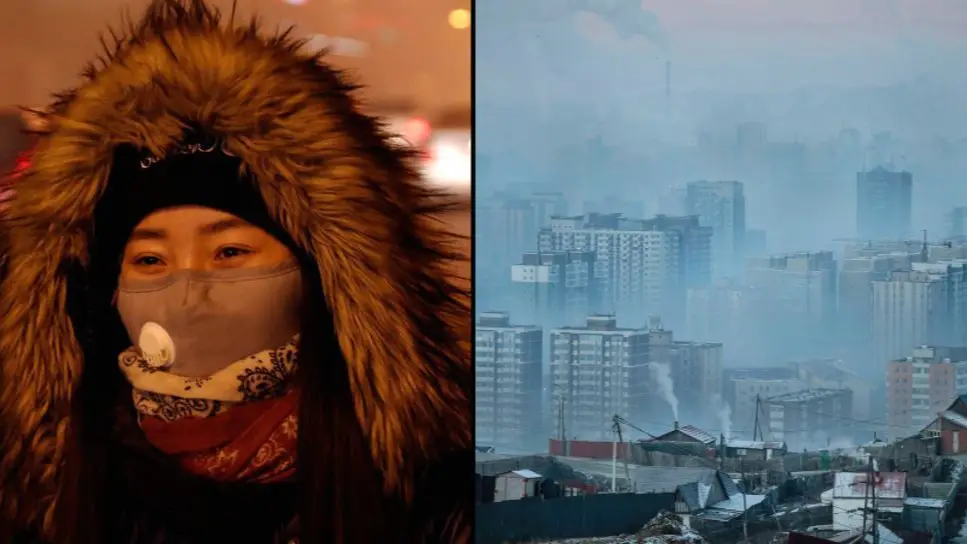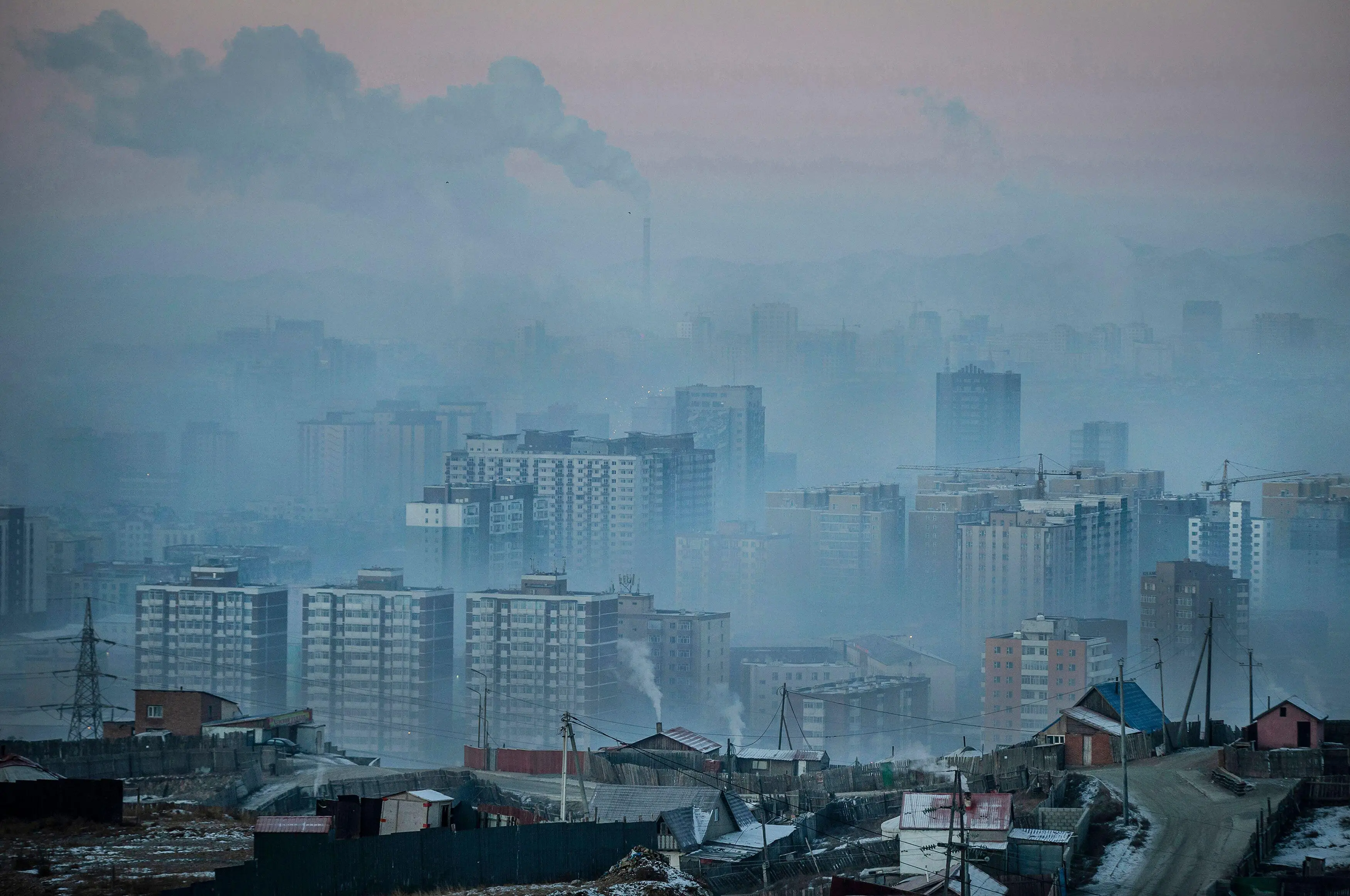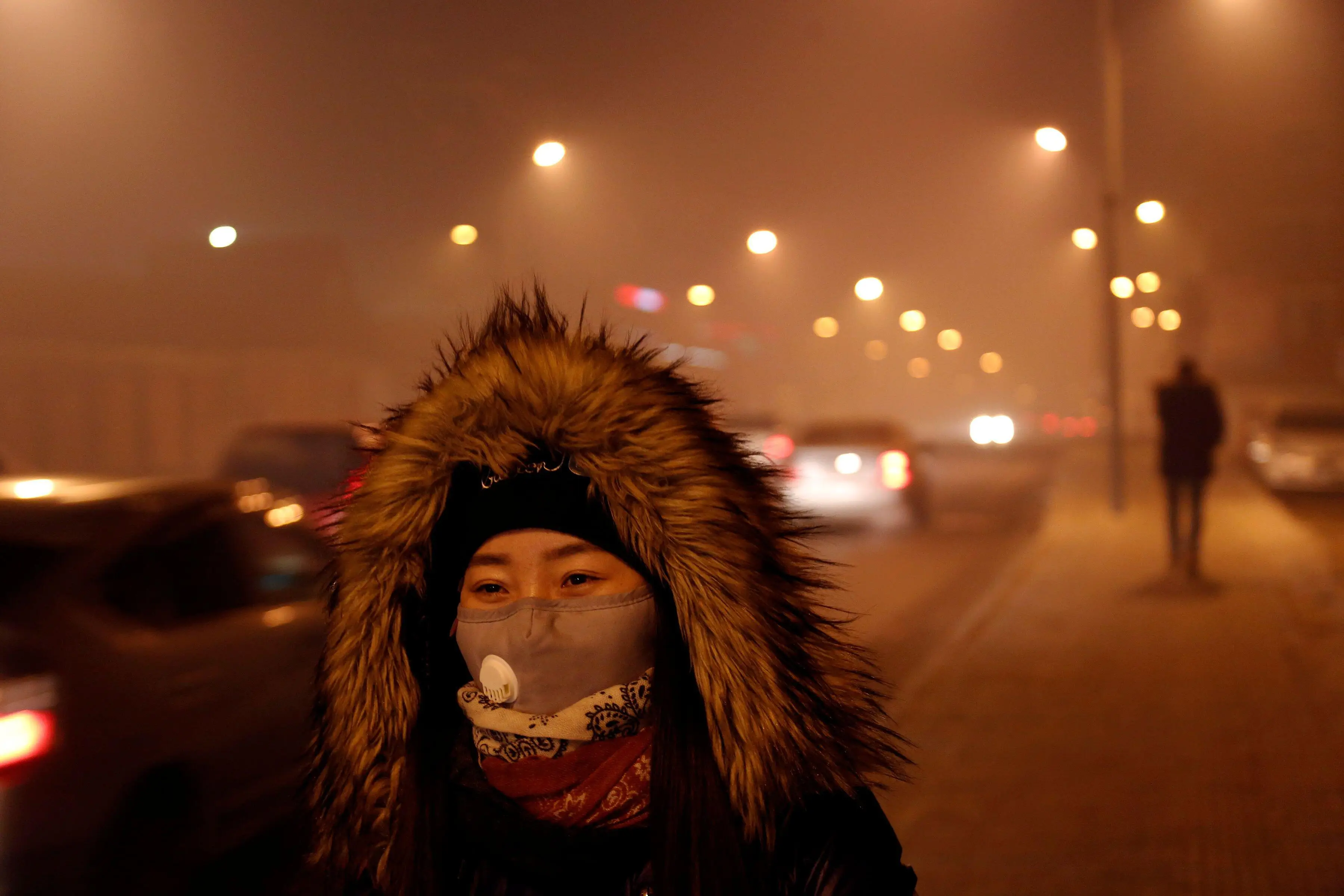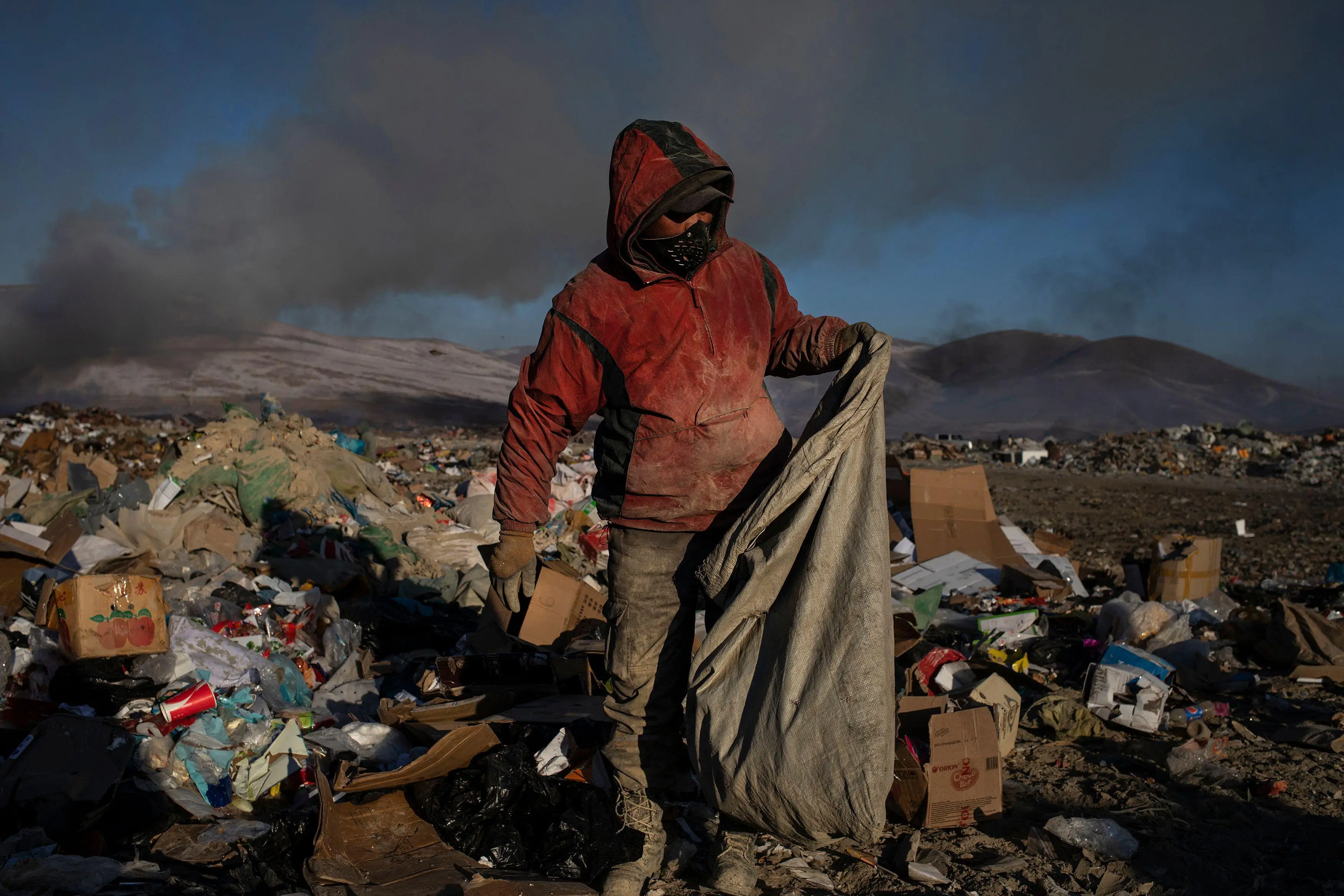
Citizens have described the horrific conditions of living in one of the most polluted capital cities in the world that causes itchy skin and soot-stained curtains.
While face masks are becoming a fading hangover from the Covid-19 pandemic in much of the world, for the 1.5 million people living in Mongolia's capital, they have been essential since 2017 and will likely outlive memories of the pandemic.
Ulaanbaatar suffers from some of the worst air pollution in the world, with UNICEF having declared that 'air pollution has become a child health crisis'.
At its most polluted, the air in the capital has contained 687 micrograms of pollution per cubic metre. This is 27 times the level World Health Organisation recommends as safe.
Advert

And as for the cause? An unfortunate combination of coal dependence, location and a cold climate that has an average temperature of -1.3°C. In winters, Ulaanbaatar is the world's coldest capital, with temperatures plunging as low as -40°C, according to World Atlas.
This forces locals to burn coal for heat, resulting in huge amounts of particulates entering the air.
This damage is exacerbated by Mongolia's power plants, many of which also depend on coal power.
It also doesn't help that the city is positioned at the base of a valley, trapping pollutants further.
These extreme conditions and high levels of pollution have put young people at highest risk of the pollution crisis, as UNICEF warned: “The risks include but are not limited to stillbirth, preterm birth, lower birth weight, pneumonia, bronchitis, asthma and death."
Anecdotally, the pervasive smog has had a profound effect on the precautions young people - as well as all other residents - are being forced to make.

A 15-year-old resident said to The Mirror: “When walking outside without a mask, the throat stings and coughs”.
The young student claimed that the pollution also takes a toll on their mental health: “When I open the window to let the air in, I smell smoke, and I'm stressed because I can't get enough fresh air."
Another student spoke about the way her family have tried installed filters in their car and home in order to keep out the smog.
But the 16-year old was wary that 'the effects are still there, such as skin rashes, headaches, and chest pains. In the past, white clothes and curtains were soot.'
In a bid to combat the smog, the Mongolian government introduced a ban on burning raw coal in 2019. This energy source was most popular amongst the 'Ger' communities, who traditionally live in yurts on the outskirts of the city.

But the lower emission alternatives, such as 'refined coal briquettes' have been criticised due to their expense, impacting poorer families in Ulaanbaatar more than the legislators.
But these sorts of green policies do seem to be working with air quality improving since the coal ban. A 16-year old commented "In the past, white clothes and curtains were soot."
Ecology campaigners hope that through programmes like the governments "One Billion Trees by 2030" scheme, Ulaanbaatar might one day rise out of the blackened haze which consumes it.
Topics: World News, Environment
